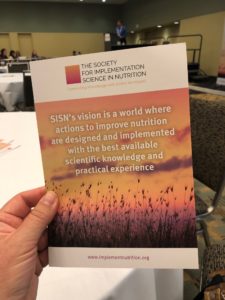Commentary on “What’s in a Name: Is Implementation Science Repackaged Process Evaluation?”
This commentary was written by SISN’s Past President, Dr. David Pelletier. The article can be read here.
This blog from Dr. Taren Swindle addresses important questions about the distinctive purposes and methods of implementation science. Like ourselves, she fields many questions about what is and is not included in implementation science and “am I doing implementation science?” Her blog provides some straightforward answers and clear definitions and concepts based on the considerable work by the NIH, the journal Implementation Science and leading researchers who have developed and championed implementation science in the U.S. Those definitions and concepts are internally consistent and appropriate in settings like the U.S. where the institutional and individual capacity and resources for research and for implementation management and improvement are well-established.
Those capacities and resources are much less developed in low and middle income countries which are the focus for SISN’s work in its early years. For that reason, SISN’s goals, definitions and conceptual development differ in important ways from those in the U.S. SISN recognizes that implementation challenges can occur in or arise from all five domains of the Consolidated Framework for Implementation Research1 and its goal is to respond to these challenges with the most relevant, practical and timely approaches in a specific context2. Thus, SISN defines implementation research in an inclusive fashion as “a variety of methods of assessment, inquiry and formal research whose purpose is to systematically assess, build on strengths and address potential weaknesses within and between each of the five domains that affect implementation.” Process evaluations are included within this definition, along with formative research, operations research, opinion leader research, effectiveness trials and many other forms of empirical methods. That is one big difference from the U.S.-based definitions. The other concerns implementation science itself.
Consistent with its goal of being relevant, practical and timely, SISN recognizes the need to mobilize existing knowledge from “the science of implementation” to address implementation challenges that need not or cannot wait for the results of formal research. Accordingly, SISN defines implementation science as “an interdisciplinary body of theory, knowledge, frameworks, tools and approaches whose purpose is to strengthen implementation quality and impact” and its integrated framework includes activities like technical assistance, knowledge brokering, coaching, etc. to ensure the timely mobilization and uptake of that knowledge.
In short, given its goals and the settings in which it works, SISN seeks to avoid privileging formal trials over other empirical methods, seeks to make use of existing knowledge from the science of implementation to the greatest extent possible and seeks to minimize or avoid the Know-Do Gap by building the knowledge translation and utilization functions into its integrated framework. All of this requires communication and collaboration among researchers, practitioners, donors and other stakeholders, which is one of the reasons SISN’s membership and following also is inclusive.
References
- Damschroder, L.J., Aron, D.C., Keith, R.E., Kirsh, S.R., Alexander, J.A. et Lowery, J.C. (2009). Fostering implementation of health services research findings into practice: a consolidated framework for advancing implementation science. Implementation Science, 4: 50. doi: 10.1186/1748-5908-4-50.
- Tumilowicz A, Ruel MT, Pelto G, Pelletier D, Monterrosa EC, Lapping K et al Implementation Science in Nutrition: Concepts and Frameworks for an Emerging Field of Science and Practice (2019) Current Developments in Nutrition 3 (3) nzy080
You can learn more about SISN’s conceptual thinking, definitions and frameworks here or by reading our paper “Implementation Science in Nutrition: Concepts and Frameworks for an Emerging Field of Science and Practice” published in Current Developments in Nutrition.
Have an idea or a comment on any of the issues discussed above? We welcome your feedback – you can comment on this post on our LinkedIn feed or write to us at info@implementnutrition.org.



